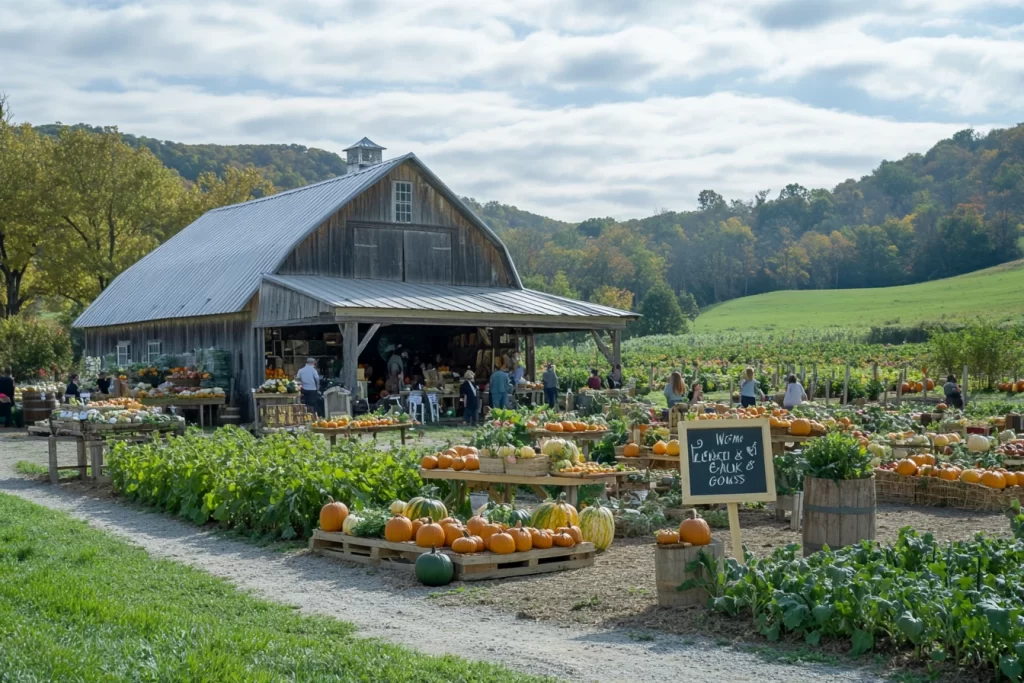Rural America has long been associated with vast landscapes and agricultural heritage, but today, these communities face a new set of challenges. Population decline, economic struggles, and the lure of urban life have left many rural areas searching for ways to sustain themselves. In the midst of these challenges, however, a new story is unfolding—one that centers on the rise of rural entrepreneurs. These individuals are reshaping the economic landscape of their communities, balancing innovation with a deep connection to tradition, and proving that small-town America is capable of more than just survival.

The New Rural Entrepreneur
Today’s rural entrepreneur is redefining what it means to be a business owner in small-town America. While farming and agriculture remain core elements of many rural economies, there is a growing trend of diversification. Farmers are increasingly embracing agritech, organic practices, and niche markets. Local artisans, e-commerce sellers, and remote workers are setting up shop in places long considered too small or disconnected to support such ventures. These entrepreneurs blend modern tools like e-commerce and remote working platforms with the authenticity and craftsmanship deeply ingrained in rural life.
“In many ways, entrepreneurs are the life blood of a community’s economy. Entrepreneurs start new businesses that build new local industries or expand existing ones. Along the way, many entrepreneurs hire others in their community, creating new jobs. This constant churn of pursuing new ideas and opportunities keeps communities vibrant,” wrote Andrew Dumont and Marysol McGee in a post for the Fedcommunities blog. “This is particularly true in rural communities, where small businesses and entrepreneurs have long been important. “
Yet, while this new wave of entrepreneurship is bringing renewed hope, it also brings with it the pressures of sustaining both economic growth and the values that define rural communities. For many, it’s not just about finding new ways to generate income, but about doing so in a way that remains true to the identity and heritage of these areas.

Supporting Infrastructure for Startups
One of the critical elements enabling rural entrepreneurship has been the slow but steady improvement in infrastructure, particularly broadband access. Historically, the lack of reliable high-speed internet and basic communication networks held many rural communities back. Today, government initiatives and local efforts are working to bridge the digital divide, though much work remains to be done.
With improved connectivity, rural entrepreneurs can now participate in the global economy in ways that were once unimaginable. Remote work has opened doors for individuals to stay in their hometowns while pursuing careers that previously required relocation. E-commerce has allowed artisans, food producers, and local businesses to reach national and international markets. However, while the digital age offers new opportunities, the uneven pace of progress means many rural areas still struggle with insufficient infrastructure, making it difficult for some entrepreneurs to fully realize their potential.

Local Innovation in Action
Despite these challenges, rural communities are finding creative ways to innovate. In many cases, it’s the very characteristics that once seemed like limitations—small populations, limited resources, and isolation—that are now driving new kinds of businesses. From small-scale manufacturers producing handcrafted goods to farmers adopting precision agriculture technologies, rural entrepreneurs are creating success stories that serve as models for others.
These examples, however, remain exceptions rather than the rule. Many entrepreneurs continue to face significant barriers to entry, from limited access to capital to a lack of mentorship and training. Rural communities often lack the resources found in urban startup ecosystems, forcing entrepreneurs to rely on personal savings, community networks, or crowdfunding to get their businesses off the ground. While the resilience and ingenuity of these business owners are commendable, the road ahead remains steep for many.

Challenges of Rural Entrepreneurship
The rise of rural entrepreneurship, though promising, is not without its difficulties. Access to financial resources is one of the most persistent challenges. Traditional banks often hesitate to lend to small businesses in rural areas, perceiving higher risks and lower potential returns. As a result, many rural entrepreneurs are left to seek alternative funding options, such as grants, community loans, or state-supported rural development programs.
Another challenge is the scarcity of skilled labor. Many rural areas have seen younger generations move to cities in search of better opportunities, leaving behind an aging workforce. This shortage of talent makes it difficult for rural entrepreneurs to scale their businesses or adopt more advanced technologies. While some communities are addressing this issue through workforce development programs and by encouraging the return of local talent, the gap remains significant.

Agritourism and Niche Markets
One of the most promising areas of growth for rural entrepreneurs is agritourism and niche market development. By leveraging the unique cultural and agricultural heritage of rural communities, many entrepreneurs are turning to tourism, local products, and artisanal crafts to sustain their businesses. From farm stays and guided tours to artisanal food production, rural entrepreneurs are finding ways to invite outsiders into their world, offering experiences and products that cannot be found elsewhere.
Yet, even this path is not without challenges. While agritourism and niche markets can generate revenue and help preserve cultural heritage, they also place additional pressure on local resources and infrastructure. Balancing the needs of tourists with the preservation of rural ways of life requires careful planning and ongoing community engagement. The success of these ventures often depends on the community’s ability to maintain its identity while welcoming new forms of economic activity.

The Future of Rural Entrepreneurship
The future of rural entrepreneurship remains one of cautious optimism. As small businesses grow and new ventures take root, rural communities are beginning to see the potential for economic renewal. However, this progress will require continued investment—not just in infrastructure, but in education, training, and community support systems.
For rural America to thrive, there must be a concerted effort to address the underlying challenges that have historically held these communities back. Whether through increased access to capital, more robust digital infrastructure, or better workforce development, rural entrepreneurs need the tools to succeed on a level playing field with their urban counterparts.
At its core, rural entrepreneurship is about more than just business—it’s about the survival and renewal of communities that have long been seen as America’s backbone. As these entrepreneurs navigate the complex landscape of economic modernization, they are also working to preserve the values and traditions that define their way of life. The balance between progress and preservation is delicate, but with careful planning and support, rural entrepreneurship has the potential to lead these communities into a vibrant and sustainable future.
USDA Rural Development Business Programs
Fedcommunities website
Previous blogpost:
Unlocking the Remarkable Transformation of Rural America: How Small Towns Are Thriving by Balancing Tradition and Innovation


1 Comment